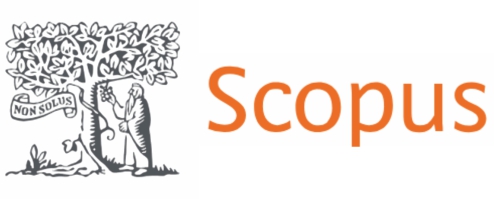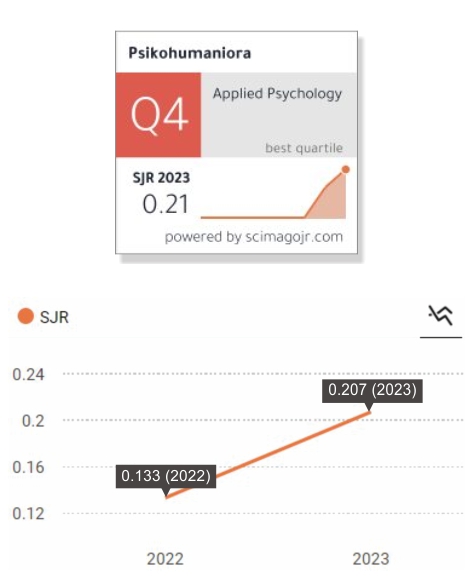chrome_reader_mode Online Submissions
Registration and login are required to submit items online and to check the status of current submissions.
Already have a Username/Password for Psikohumaniora: Jurnal Penelitian Psikologi?
Go to Login
class Author Guidelines
The editors invite experts, practitioners, and enthusiasts in psychology to submit research articles. These should be original, research-based, unpublished, and not under review for possible publication in other journals. All submitted papers are subject to review by the editors, editorial board, and blind reviewers. Submissions that violate our guidelines on formatting or length will be rejected without review. These should be original, research-based, ethically contrived, unpublished, and not under review for possible publication in other journals.
Online Submission Guidelines
Manuscripts must be sent online to the Psikohumaniora: Jurnal Penelitian Psikologi portal.
Steps for Submitting Manuscripts
- Authors should register and check the “author†column on the registration page.
- After logging in, click "New Submission". The stages of article submission are as follows:
- In the Start section, complete all the checklists, then click save and continue.
- In the Upload Submission section, upload the article manuscript file in MS Word format. Then click save and continue.
- In the Enter Metadata section, enter the data of all the authors and affiliates. If there is more than one author, click ‘add author’, then fill in their data in the same way as the first author, and so on. Next, fill in the title, abstract, keywords, research methods, and bibliography in each of the available columns.
- In the Upload Supplementary Files section, it is permissible to upload supporting files, cover letters, author's contributions statements, ethical clearance statements, or other documents.
- In the Confirmation section, click Finish Submission if all the data are correct.
ÂÂ
For an example of the Author's Contributions Statements,ÂÂ
click here.
ÂÂ
General Instructions
- Articles should be formatted according to the writing pattern of scientific journals. The rules set out in the Publication Manual of the American Psychological Association (APA), Seventh Edition should be followed. You may use Mendeley or Zotero reference management software and select the setting for the American Psychological Association (APA), 7th Edition. For an explanation of the APA Citation Guide, please see APA Referencing Style.
- Articles should be original works, not previously published in any printed or online journal.
- When the status of the submission (article) is under review or has been published for this journal, the author(s) will not be allowed to submit the article to another journal.
- Submit the article to the editors online via the Open Journal System (OJS).
- The Cambria font (10.5 pt) should be used, with 1.5 spacing, in Microsoft Word format with A4 page size (210 x 297 mm). The number of words should be between 5500 and 7000, excluding references.
- Tables or graphs must be in editable format (not screenshots, not Jpeg/png format).
- The article must be written in English. Accepted articles will be proofread by proofreaders appointed by Psikohumaniora. Proofreaders' fees are included in the Article Publication Charge.
- The article must adhere to Ethical Clearance Requirement.ÂÂ
NOTE - Given the constraints on available publishing slots and to provide opportunities to other authors, individuals whose articles have been published in the Journal of Psikohumaniora may submit their subsequent article no earlier than two years after their previous publication. For instance, if an individual's article is published in Vol. 7, No. 1 (2022), they would be eligible to submit another article for consideration starting from Vol. 9, No. 2 (2024). |
Particular Instructions
- The article should result from empirical research in clinical psychology and positive psychology.
- Because of the "Blind Review" system, authors should not include their name, their affiliation, the address of the affiliation, or their email address on the cover of the article. Authors’ names, names of institutions, and email addresses are listed at registration on the OJS author page (in the enter metadata section). Please also give us your telephone number when you send your article so we can contact you easily.
- The content and guidelines of articles should be in narrative essay format, written in paragraphs, with no numbering of headings, and should include these components:
- Title.  This should be a brief formulation of the content and be compact and clear – it may be creative to attract readers. It should be a maximum of 20 words and be in English, in bold format, with the first word of the sentence capitalized.
- Abstract. This should be in English. It should comprise one single-spaced paragraph and not exceed 170 words. It should be brief and clear, comprising five elements: 1) the background of the research, 2) the aims of the research, 3) the methods, 4) the results, 5) the implication of the research. Do not use abbreviations or citations.
- Keywords. These can be drawn from the research variables, the characteristics of the subjects, and the referenced theories (a minimum of three words or combinations of words, arranged in alphabetical order and separated using semicolons).
- Introduction. The introduction should briefly provide information about the background, literature review, the originality of the work, the objective, and the hypothesis or hypotheses (if using a quantitative method). The background should indicate a knowledge gap that requires answers or explanations. The literature review should provide an exposition of the theories relevant to the research and should both guide and support understanding and answers to the research question/s. In addition, explain the originality of the work. The formulation of the hypotheses should be based on the theoretical review and as far as possible, be expressed in terms of a one-tailed direction. The objectives should be presented in a narrative with the use of effective sentences. The introduction should be approximately 20% of the total text.
- Methods. This section describes the overall research methods used in the research process. It should identify the study variables, the research subjects, the research instruments (their names, item numbers, and reliability coefficients are needed), and the statistical analysis techniques employed. Please ensure that sufficient information is given to guide further research. The section should be approximately 20% of the total text).
- Results. This section contains the data (in their simplest form), the results of the assumption tests, and the results of the hypothetical tests presented sequentially or integrated and analyzed critically. The results should answer the research question and/or hypotheses. Tables, charts, or figures should help to explain the analyses in a way that is meaningful and easy to understand. This section should also be approximately 20% of the total text
- Discussion. This section should contain an explanation of the research results in relation to those of previous studies and be critically analyzed and linked to the relevant current literature. The section should give substantial meaning to the results of the analysis and provide a comparison with the findings of previous studies. This section should also highlight the implications of the findings. The authors should also address the strengths and limitations of their study. This section should not be a repetition of the results section and be approximately 20% of the total text.
- Conclusion. This section presents the main conclusions of the study. They should be presented in concise, clear, and compact sentences based on the results and discussions in the form of paragraphs (not with bullet points or numbering); clarify the findings of the study as a synthesis of the results of the data analysis and discussion; and highlight original findings that contribute to the development of psychology. It should be a maximum of 1 page.
- Acknowledgment. (if any). This is a short text to acknowledge the contributions of specific colleagues, institutions, or agencies that aided the efforts of the authors.
- Authors' Contribution Statement. Please upload in the Uploading Supplementary File section.
- Ethical Clearance Statement. Please upload in the Uploading Supplementary File section.
- References. Ones from the last 10 years are recommended. Provide a list of references in alphabetical order and prepared following the American Psychological Association (APA) Referencing Style (7th Edition). All the listed references must be cited in the text and all text citations listed in the reference list. A DOI for each reference must be provided if available. Although authors are not obliged to, it is suggested that they use reference manager programs such as Mendeley or Zotero.
Tables and Figures
The relationship between the tables or figures and the text should be clear. Authors must explain what the readers should look for when using tables or figures. All tables and picture captions are written with text. The arrangement and placement of tables and figures must refer to the APA 7th Edition about tables and figures. Tables and figures must be placed at the top or bottom of the page, not in the middle. Examples of how to display data in the form of tables or figures can be seen on the Article Template.
_____________
Note. The editors have updated the author guidelines as of January 14, 2024. The author guidelines will be used by issuing Vol. 9 No. 1 (May 2024)—the update including, i.e., removal of the Indonesian abstract and the adjustment of the article length.
assignment Copyright Notice
The copyright of the received article shall be assigned to the publisher of the journal. The intended copyright includes the right to publish the article in various forms (including reprints). The journal maintains the publishing rights to published articles. Therefore, the author must submit a statement of the Copyright Transfer Agreement.*)

This work is licensed under a Creative Commons Attribution-NonCommercial-ShareAlike 4.0 International License.ÂÂ
In line with the license, authors and any users (readers and other researchers) are allowed to share and adapt the material only for non-commercial purposes. In addition, the material must be given appropriate credit, provided with a link to the license, and indicated if changes were made. If authors remix, transform or build upon the material, authors must distribute their contributions under the same license as the original.
*) Authors whose articles are accepted for publication will receive confirmation via email to send a Copyright Transfer Agreement.
assignment Privacy Statement
The names and email addresses entered on the journal site will be used exclusively for the stated purposes of the journal and will not be made available for any other purpose or to any other party.
monetization_on Author Fees
This journal charges the following author fees.
Article Processing Charge (APC): 5000000.00 (IDR)
Starting from Volume 8 No 1 (2023), Psikohumaniora: Jurnal Penelitian Psikologi now incurs an Article Processing Charge (APC) of IDR 5,000,000.00 (for domestic authors) or USD 375.00 (for foreign authors).
APC must be paid after the submitted article is accepted for publication. Proofreaders' fees are included in the Article Processing Charge.
Bank Account Number:

Bank Negara Indonesia (BNI) 7979202299
Bank Account Name:
RPL 134 BLU UIN WALISONGO UTK OPS 2
SWIFT code (for transfers via foreign banks):
BNINIDJA












